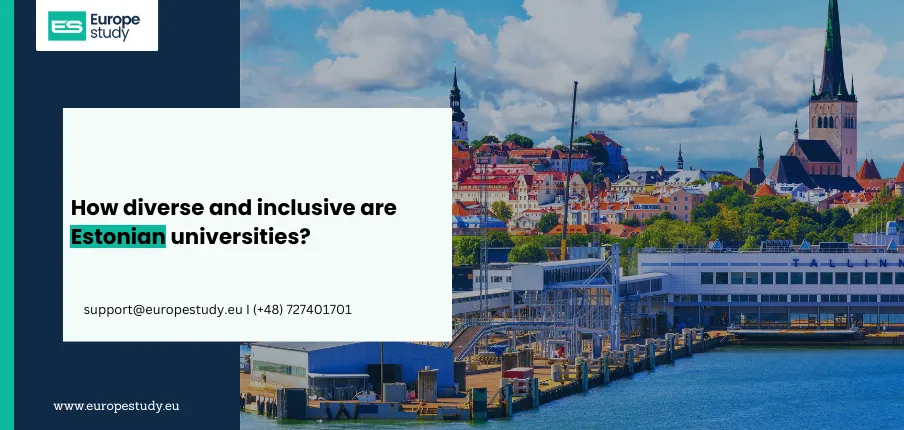
How diverse and inclusive are Estonian universities?
Estonia, a small yet forward-thinking country in Northern Europe, has become an increasingly popular destination for international students. With its rapidly growing tech sector, high-quality education system, and English-taught programs, Estonia is no longer a hidden gem—it’s a rising hub for global talent. But beyond academics and innovation, one pressing question remains: How diverse and inclusive are Estonian universities?
A Growing International Student Community
In the past decade, Estonia has made significant efforts to internationalize its higher education system. As of recent years, thousands of international students from over 120 countries study in Estonia. The most represented countries include Finland, Russia, Nigeria, Ukraine, India, and Bangladesh.
Estonian universities such as the University of Tartu, Tallinn University of Technology (TalTech), and Tallinn University offer a wide range of English-taught bachelor’s, master’s, and doctoral programs. These efforts have opened doors to students from diverse linguistic, cultural, and ethnic backgrounds.
Academic Inclusivity
Estonian universities place a strong emphasis on academic inclusivity. Most institutions have international student support offices that assist with admissions, adaptation, and academic success. Orientation programs, academic advising, and mentoring schemes are available to help international students integrate into the university community.
Many universities also ensure that curriculum materials and classroom environments are inclusive and culturally sensitive. Professors are generally accustomed to teaching diverse cohorts and often encourage open discussion and intercultural collaboration.
Language Accessibility
Although Estonian is the national language, English is widely used in academic settings. Over 150 degree programs are offered entirely in English, and most university staff and students in urban centers speak English fluently. Language is rarely a barrier within university environments, although learning some Estonian can enhance everyday life and job prospects.
Some universities even offer free or subsidized Estonian language courses for international students, promoting deeper cultural integration.
Cultural Inclusion and Student Life
Estonian universities actively promote cultural exchange and organize multicultural events, student clubs, and international days. These initiatives help students feel included and give them opportunities to share their own culture while learning about others.
Student unions, international student associations (like ESN Estonia), and university-run events foster community and social cohesion. Many campuses have prayer and meditation spaces, vegetarian dining options, and support services that cater to various needs and backgrounds.
Challenges and Areas for Improvement
Despite the progress, challenges remain. Estonia is a relatively homogeneous society, and some international students—particularly those from underrepresented racial or religious groups—may experience occasional feelings of isolation or cultural unfamiliarity, especially outside major cities like Tallinn or Tartu.
While overt discrimination is uncommon, cultural misunderstandings can occur. That said, universities are increasingly aware of these issues and are working to foster more inclusive environments through diversity training and inclusive policy-making.
Legal Rights and Anti-Discrimination
Estonia has laws prohibiting discrimination based on race, religion, nationality, gender, or sexual orientation. Universities align their policies with these laws and typically have formal procedures for reporting and addressing discrimination or harassment.
Additionally, Estonia ranks highly on press freedom and digital rights, reflecting a broader societal commitment to openness and equality.
Support Services
International students can access a range of support services:
- Mental health and counseling services
- Career counseling and job-seeking support
- Legal and visa assistance
- Housing and relocation services
- Peer mentoring programs
These services contribute significantly to student well-being and create a more inclusive environment.
Conclusion
Estonian universities are steadily becoming more diverse and inclusive, thanks to internationalization efforts, supportive policies, and a growing international community. While there are still cultural challenges to navigate, most students find the academic and social environment welcoming, modern, and adaptable.
For students seeking a globally competitive education in a safe, digital, and progressive society, Estonia offers a compelling opportunity—one that continues to evolve toward greater inclusivity every year.





